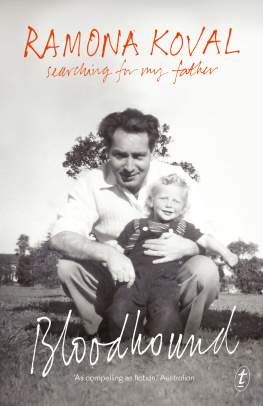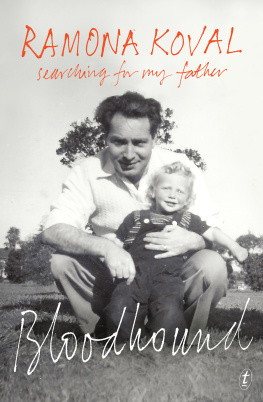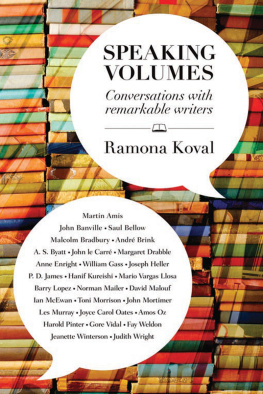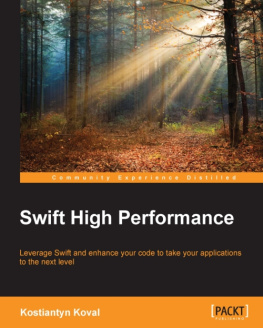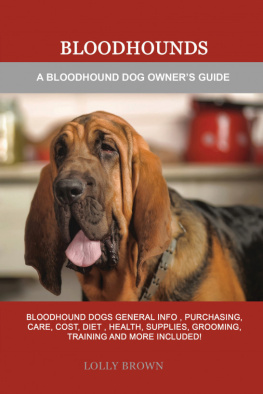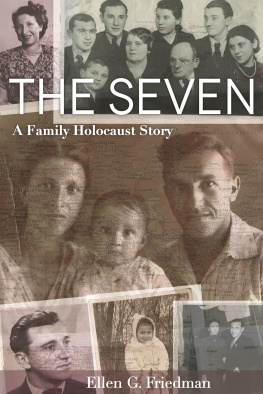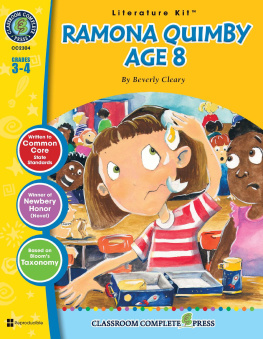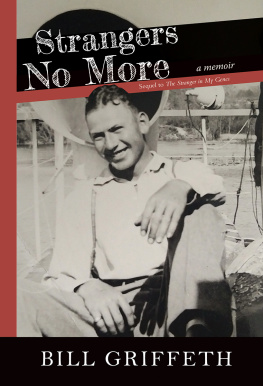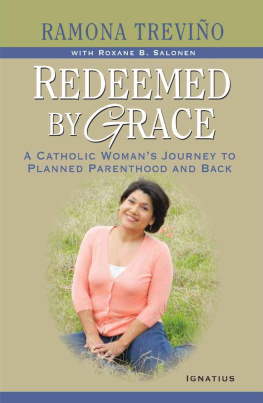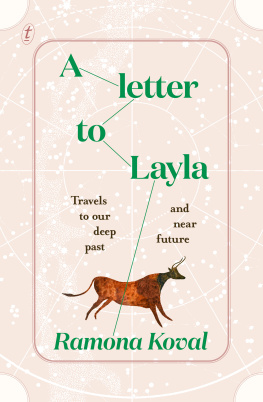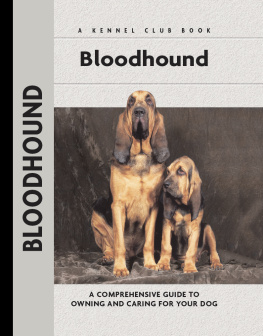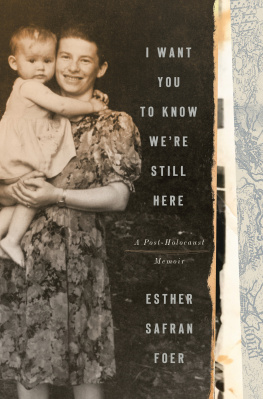
PRAISE FOR RAMONA KOVAL
I thought I had read every take on the Holocaust, but Ramona Koval adds something fresh with Bloodhound: the drive to find a more appealing lineage; a rebuilding after the disaster.
Australian Book Review
Kovals painstaking collection of evidence and tracing of clues is as compelling as fictionIn Bloodhound, Koval is hunter and prey to truths that taunt and console.
Australian
Accompanying Koval as she turns up at strange houses with flowers to solicit photographs, recollections and cell samples in picaresque fashion is made great fun [Bloodhound is] fascinating but also somewhat disquieting.
Sydney Morning Herald
Ramona Koval has carved a reputation as a consummate book critic and interviewer. Her passion for storytelling and sharp analysis is turned inwards in Bloodhound: Searching for My Father, in which she asks herself: what is my life story? Her accessibly written forays into the science of DNA and familial lineages, and what makes us who we are, are beautifully intertwined with her meditations on identity and belonging [Bloodhound is] an important reminder that history should never be forgotten.
Books+Publishing
Shes a shining presence in the world of literature, here in Australia and right across the globeHer voice is always recognisable, invigorating, familiar to us and greatly loved.
Helen Garner
Ramona Koval is a Melbourne writer, journalist, broadcaster and editor. She is an honorary fellow in the Centre for Advancing Journalism at the University of Melbourne. From 2006 to 2011 she presented Radio Nationals Book Show, and she has written for the Age and Australian. She is the author of By the Book: A Readers Guide to Life.
ramonakoval.com
textpublishing.com.au
The Text Publishing Company
Swann House
22 William Street
Melbourne Victoria 3000
Australia
Copyright Ramona Koval 2015
The moral right of Ramona Koval to be identified as the author of this work has been asserted.
All rights reserved. Without limiting the rights under copyright above, no part of this publication shall be reproduced, stored in or introduced into a retrieval system, or transmitted in any form or by any means (electronic, mechanical, photocopying, recording or otherwise), without the prior permission of both the copyright owner and the publisher of this book.
Contains two extracts from Antelme, Robert. The Human Race. Trans. Jeffrey Haight & Annie Mahler. Evanston: The Marlboro Press / Northwestern University Press, 1998. Originally published in French in 1957 under the title LEspce humaine. Copyright 1957 by ditions Gallimard, Paris. First published in English in 1992 by The Marlboro Press, Marlboro, Vermont. Translation copyright 1992 by Jeffrey Haight & Annie Mahler. The Marlboro Press / Northwestern University edition published 1998 by arrangement with ditions Gallimard. All rights reserved.
First published in 2015 by The Text Publishing Company
This edition published in 2016
Book design by W. H. Chong
All photographs courtesy of the author
Typeset in Golden Cockerel ITC by J & M Typesetting
National Library of Australia Cataloguing-in-Publication entry
Creator: Koval, Ramona, 1954 author.
Title: Bloodhound : searching for my father / by Ramona Koval.
ISBN: 9781925240900 (paperback)
ISBN: 9781925095685 (ebook)
Subjects: Koval, Ramona, 1954Family. Holocaust survivors familiesAustralia.
Father and child.
Dewey Number: 929.20994
For my grandchildren,
and their children,
for ten generations
Contents
And will the dead person have exercised his right to carry a secret to his grave? After all, is that not one of the great rights of life, to know that we know something that we will never reveal to anyone?
CARLOS FUENTES
Oif a meisseh fregt men kain kasheh nit.
Dont ask questions about fairytales.
YIDDISH PROVERB
For in much wisdom is much grief: and he that increaseth knowledge, increaseth sorrow.
ECCLESIASTES 1:18
DADS eightieth-birthday party was held late last century in his favourite restaurant, a cavernous space in a middle-class Melbourne suburb, with a tiled floor for easy cleaning, possibly even hosing down, and little in the way of warmth, charm or decoration. Clearly, you were here to eat until you were full.
Waiters balanced huge platters of food on their shouldersgrilled meats and fish and salads and dips and bread, bread, breaddelivering them to long tables of grandparents and their grandchildren, their daughters and sons-in-law, sons and daughters-in-law, and second and third cousins and their partners. The place forbade people from bringing their own drinksinstead you got them at the bar, or had them delivered to the table after a lengthy delayand each time the waiters ventured down the aisles they were accosted by ten burly customers, hands grabbing their shirts and threatening to unbalance the heaped trays. My water! Wheres my Diet Coke? I asked for a cappuccino! Its been ten minutes already and Im dying of thirst!
Dad, on this, his day, had smuggled in orange juice and mineral water in a string bag. Hed stashed the bottles under his chair, from where he sneaked them out in full view of his grandchildren, his dark-brown eyes winking loudly: for if there can be such a thing as a winking noise, Dad had it in his repertoire. He was playing the big man, as my mother might have put it, a big shot with a string bagas if this would fool anybody.
My mothers voice was in my ear, but not because she was sitting beside me. Her voice lived in my head. She had been dead for twenty-one years. She didnt make it to her fiftieth birthday, much less her eightieth. Each time Dad reached a new milestone I did the calculation. Why couldnt it be she who was celebrating, and he who was lying dead in the ground?
I know youre not supposed to wish people dead. Was it his fault that he had a new wife and a new life? They had been together for at least twenty-two yearsanother calculation I would do, justifying my outrage on Mamas behalf. I have always been good at calculations.
Mama had found a photograph of a strange woman along with a small hand mirror. They had been secured by a rubber band to the underside of the sun visor on the passenger side of our family car, a white 1963 Ford Falcon that Mama and Dad were still driving in the mid-1970s. The woman was standing by a dark-green shrub, smiling at the photographer, who may have been Dad.
She was attractive, I remember thinking, much too attractive for him, surely, a short man with greying black hair slicked straight back from his forehead. The girlfriend, as we came to think of her, was several years older but more vital-looking than Mama, whod had chronic myeloid leukaemia for a couple of years by then.
Mama tucked the photo back under the sun visor and I dont remember it being mentioned again, although she and Dad could have argued about it in Polish and I wouldnt have known. They had a long history of fighting but also of mind games. In our family album of often out-of-focus Box Brownie black-and-white photos (all of which seemed to have been taken a long way away from the subjects, so it was hard to see who they were and what they were doing) there were two photos of Dad with another man and two women, strangers to me, on a jaunt in an open-top sports car. Id never seen a car like thatI had no idea what they were doing together and who took the photo, why they were in the album and why Mama left them there.
Next page
